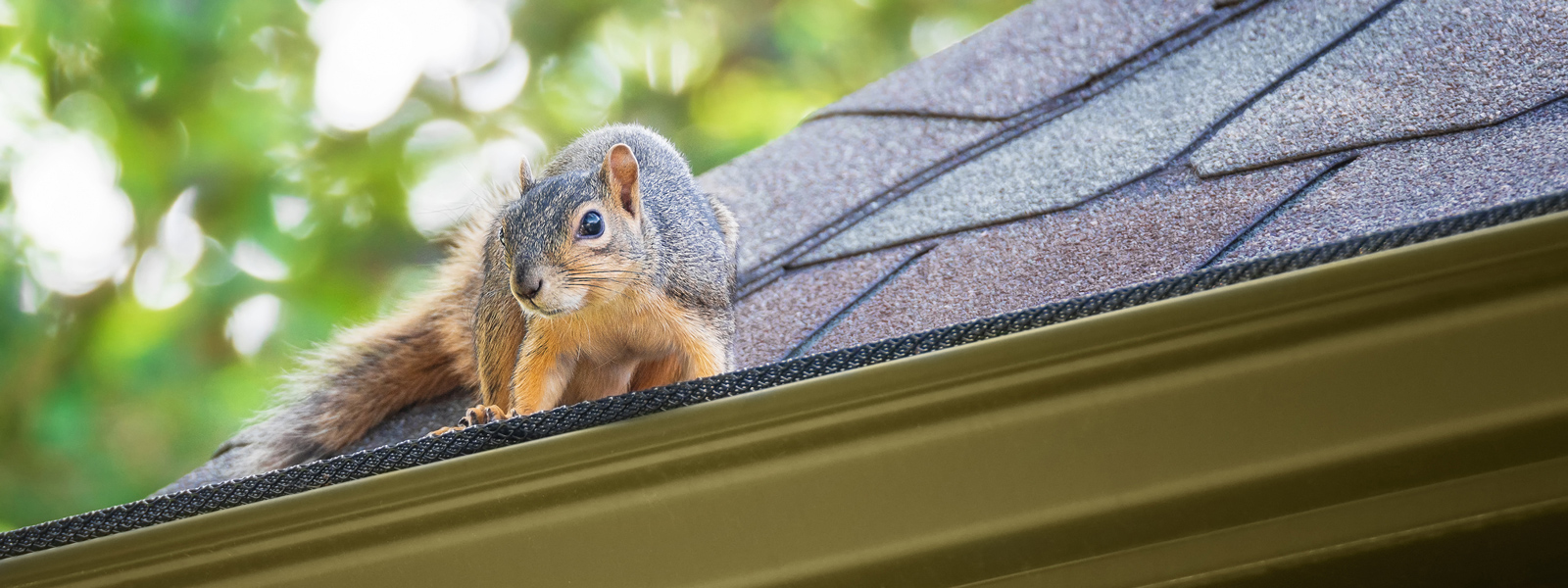Humane Rodent and Dead Animal Removal: Local Experts Near You.

Humane Rodent and Dead Animal Removal: Local Experts Near You.
Quickly and discreetly remove rodents and dead animals from your home. Find a trusted professional near you.
If you are having a problem with a wild animal, please select your city/town in North-carolina from the map or list above. This North-carolina animal control directory lists the phone numbers of professional wildlife removal experts throughout North-carolina. These nuisance wildlife control operators deal with conflicts between people and wildlife such as squirrels living in an attic, or raccoons digging through the trash can. Call the licensed and insured professional listed here, and get the problem taken care of once and for all.
There are many North-carolina pest control companies, but most of them treat for insect problems, and have little experience dealing with wild animals. Our specially trained technicians have the specific knowledge and equipment necessary for North-carolina wildlife management. We are not extermination companies, we are professional North-carolina trappers of wildlife. We are humane, and do a complete job - everything from animal damage repairs to biohazard waste cleanup.
Our North-carolina animal control experts can handle many wildlife issues. Examples include North-carolina bat control and removal. It takes an experienced pro to safely and legally remove a colony of bats. The same goes for bird control, such as roosting pigeons. We know all the species of North-carolina snakes, and can safely remove them. We most commonly deal with animals in the home, such as rats or mice in the attic, or raccoons in the chimney. Select your area on the map above, and find a professional in your home town.
There are many North-carolina pest control companies, but most of them treat for insect problems, and have little experience dealing with wild animals. Our specially trained technicians have the specific knowledge and equipment necessary for North-carolina wildlife management. We are not extermination companies, we are professional North-carolina trappers of wildlife. We are humane, and do a complete job - everything from animal damage repairs to biohazard waste cleanup.
Our North-carolina animal control experts can handle many wildlife issues. Examples include North-carolina bat control and removal. It takes an experienced pro to safely and legally remove a colony of bats. The same goes for bird control, such as roosting pigeons. We know all the species of North-carolina snakes, and can safely remove them. We most commonly deal with animals in the home, such as rats or mice in the attic, or raccoons in the chimney. Select your area on the map above, and find a professional in your home town.
North Carolina info: The state mammal is the Gray Squirrel, whose scientific name is Sciurus carolinensis!
If you need assistance with a domestic animal, such as a dog or a cat, you need to call your local North Carolina county animal services or SPCA for assistance. They can help you out with issues such as stray dogs, stray cats, dangerous animal complaints, pet adoption, bite reports, deceased pets, lost pets, and other issues. We have those numbers listed here for your convenience. If your city is not on our map, consult your local yellow pages or search for 'Animal Control' or 'SPCA' in your town.
If you need assistance with a domestic animal, such as a dog or a cat, you need to call your local North Carolina county animal services or SPCA for assistance. They can help you out with issues such as stray dogs, stray cats, dangerous animal complaints, pet adoption, bite reports, deceased pets, lost pets, and other issues. We have those numbers listed here for your convenience. If your city is not on our map, consult your local yellow pages or search for 'Animal Control' or 'SPCA' in your town.
Raleigh, NC
32°F to 89°F
32°F to 89°F
- European honeybee
- Channel bass
- Eastern box turtle
- Northern cardinal
- Gray squirrel
North Carolina is a coastal state with three distinct climate zones. The beaches lead into a flat, grassy section of the state, which eventually transitions into foothills with tall forests. This transitional area then flows into the Appalachian Mountains. Like most coastal states, North Carolina has a diverse population of wildlife. Not only are there land-loving animals, there are a variety of creatures associated with the ocean. Beaches on the Atlantic Ocean are not as loaded with large marine life like on the West Coast, but there is a fair share of creatures that make daily appearances on the beach. Jellyfish, though not able to live outside of the water, frequently wash up on shore. These animals can sting even when dead, making their cleanup off the coast essential to the tourist trade. The coasts are a popular vacation destination, and seagulls harass tourists relentlessly, being so bold as to steal food directly from people's hands.
The foothills and mountains further inland have a different animal dynamic. Here, the largest predators are the coyote and the black bear. These animals are relatively reclusive, though bears have been known to saunter into yards for the purpose of destroying birdfeeders or picking through garbage cans. For the most part, a bear won't live in your yard, though it will keep coming back until you stop supplying it with food. Coyotes are a different issue. In the country they are not terribly problematic. Urban coyotes, that have been forced to live in close quarters with people, will stalk pets and small children even in fenced yards.
North Carolina has a small population of wild horses called Banker horses. These short, stocky equines are descendants from Spanish breeds brought over to the early America. The horses are allowed to roam as they please, and they are isolated to just the Outer Banks, islands of the North Carolina coast.
While wild horses are rare on this side of the United States, North Carolina has the same pest animals as most of the other regions in the country. People in the state are plagued by the presence of rodents in the home. Rats, mice, and squirrels are all common invaders. Raccoons and porcupines also make their presence known, and it's not unheard of to have a skunk living under the shed.
The foothills and mountains further inland have a different animal dynamic. Here, the largest predators are the coyote and the black bear. These animals are relatively reclusive, though bears have been known to saunter into yards for the purpose of destroying birdfeeders or picking through garbage cans. For the most part, a bear won't live in your yard, though it will keep coming back until you stop supplying it with food. Coyotes are a different issue. In the country they are not terribly problematic. Urban coyotes, that have been forced to live in close quarters with people, will stalk pets and small children even in fenced yards.
North Carolina has a small population of wild horses called Banker horses. These short, stocky equines are descendants from Spanish breeds brought over to the early America. The horses are allowed to roam as they please, and they are isolated to just the Outer Banks, islands of the North Carolina coast.
While wild horses are rare on this side of the United States, North Carolina has the same pest animals as most of the other regions in the country. People in the state are plagued by the presence of rodents in the home. Rats, mice, and squirrels are all common invaders. Raccoons and porcupines also make their presence known, and it's not unheard of to have a skunk living under the shed.
North-carolina Wildlife Invading Homes: A Growing Concern
North-carolina's landscape and climate make it an ideal habitat for a wide variety of wildlife. Unfortunately, this can also lead to problems for homeowners as animals seek shelter and food in residential areas.
As the human population continues to expand, encounters with wildlife are becoming increasingly common across the United States. One of the most frustrating and sometimes dangerous issues for homeowners is when animals find their way inside.
One of the most common culprits is the raccoon. These intelligent and adaptable creatures are skilled at finding ways into homes through small openings in roofs, chimneys, or vents. Once inside, they can cause damage to insulation, wiring, and furniture.
The specific types of wildlife that may invade homes vary depending on the region, but some common culprits in North-carolina include:
To prevent wildlife from entering your home, consider the following:
If you have a wildlife infestation, it's important to contact a professional wildlife removal service. They have the experience and equipment to safely and humanely remove animals from your home and prevent future infestations.
By taking these steps, you can help protect your home and property from wildlife damage while also ensuring the safety of both humans and animals
As the human population continues to expand, encounters with wildlife are becoming increasingly common across the United States. One of the most frustrating and sometimes dangerous issues for homeowners is when animals find their way inside.
One of the most common culprits is the raccoon. These intelligent and adaptable creatures are skilled at finding ways into homes through small openings in roofs, chimneys, or vents. Once inside, they can cause damage to insulation, wiring, and furniture.
The specific types of wildlife that may invade homes vary depending on the region, but some common culprits in North-carolina include:
- Opossums: These nocturnal marsupials can squeeze through surprisingly small holes.
- Squirrels: Both ground squirrels and tree squirrels can cause damage to homes and gardens.
- Bats: Bats may enter through small gaps in the roof or walls, potentially carrying diseases.
- Rodents: Rats and mice can squeeze through tiny openings and contaminate food.
To prevent wildlife from entering your home, consider the following:
- Seal up entry points: Inspect your home for any gaps or cracks in the exterior and seal them with caulk or metal flashing.
- Install screens: Use screens on windows and vents to deter flying animals.
- Remove attractants: Keep garbage, pet food, and bird feeders away from your home to avoid attracting wildlife.
If you have a wildlife infestation, it's important to contact a professional wildlife removal service. They have the experience and equipment to safely and humanely remove animals from your home and prevent future infestations.
By taking these steps, you can help protect your home and property from wildlife damage while also ensuring the safety of both humans and animals
